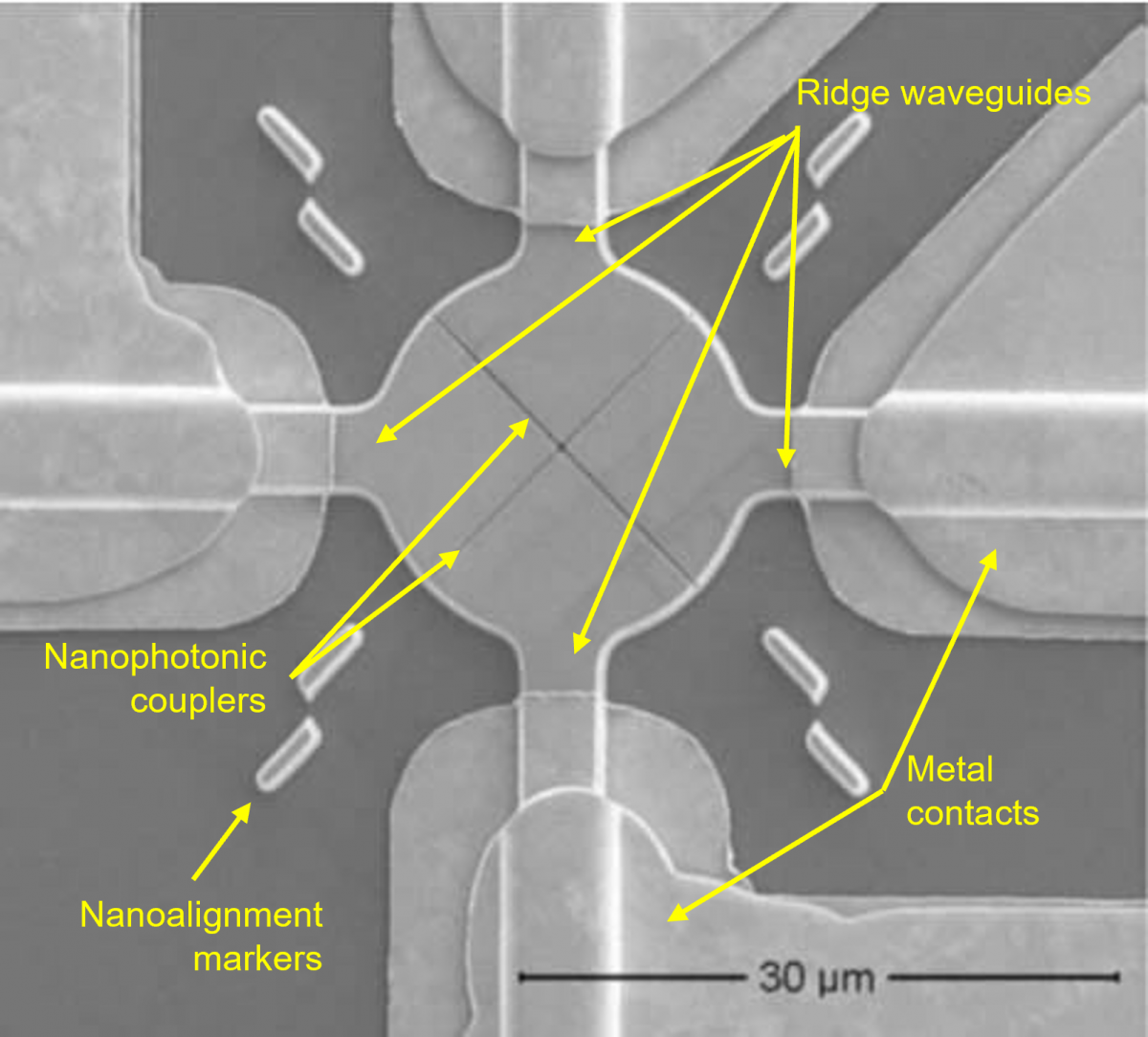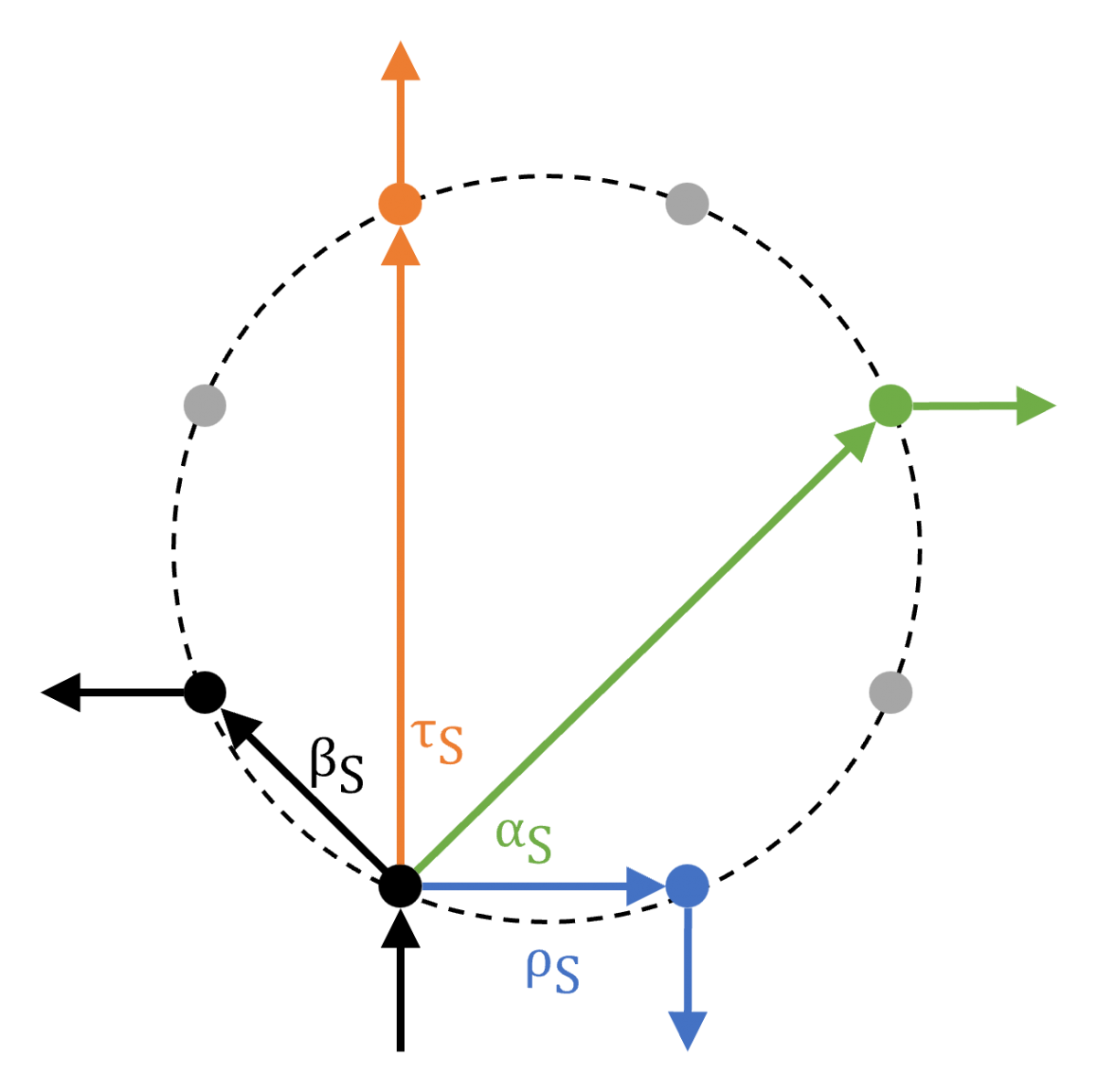The transfer function library is designed around notation conventions used in publications1,2,3
The convention of coupling coefficients, $\alpha_i$, $\beta_i$, $\tau_i$, and $\rho_i$ follows that shown in the diagram below for a $4\times 4$ coupler. For each of the 4 possible inputs to a $4\times 4$ coupler there are 4 possible outputs.
Here, subscripts denote the input directions north ($N$), east ($E$), south ($S$), and west ($W$). For example, for a ray or photon incident on the south side of the node,
- $\rho_S$ represents a back-reflected ($\rho$) to the south side.
- $\tau_S$ represents a transmitted ($\tau$) to the north side.
- $\alpha_S$ represents a right-reflected ($\alpha$) to the right side.
- $\beta_S$ represents a left-reflected ($\beta$) to the left side.
Similarly, gain, unit delay, and state notations are adopted from the publications listed above. For example,
- $z^{-1}$ represents a unit delay
- $g_i$ represent gain elements
- $x_i$ represent optical states
In the source publications, distances between couplers were kept the same, while gain elements were incorporated as active multi-quantum well laser sources along each beam path in a ridge waveguide. In this case, as shown in the scanning electron micrograph below, light traveling in the ridge waveguides could be amplified (gain) using an applied voltage to metal contacts. Light incident on the nanophotonic couplers could be made to reflect and transmit in all four directions.

Should you require additional objects that you'd like to use in conjunction with this library, please contact Tim (TJ) LaFave Jr. so we can expand the utility of this library for other researchers. I will happily incorporate any new graphics pertinent to this library so you and others may use them consistently across the literature. The aim is to create a uniform format that will reduce confusion among researchers.
- 1. D. L. MacFarlane, Christensen, M. P., A. Nagdi, E., Evans, G. A., Hunt, L. R., Huntoon, N., Kim, J., Kim, T. W., Kirk, J., LaFave, Jr., T., Liu, K., Ramakrishna, V., Dabkowski, M., and Sultana, N., “Experiment and theory of an active optical filter”, J. Quant. Electron., vol. 48, 2012.
- 2. D. L. MacFarlane, L. R. Hunt, VRamakrishna, T. J. LaFave, W. Zhou, N. Sultana, and A. Stark, “Chip-Scale Analog Optical Signal Processing”. LEOS Ann. Meeting, pp. 437 - 438, 2008.
- 3. D. L. MacFarlane, M .P. Christensen, L R. Hunt, J. Kim, T. W. Kim, T. P. LaFave, K. Liu, E. Nagdi, N. Sultana, V. Ramakrishna, M. Dabkowski, "Active Optical Lattice Filters with Nanophotonics Four-Port Couplers," 15th OptoElectronics and Communications Conference (OECC2010) Technical Digest, 7D3-4, 2010.



